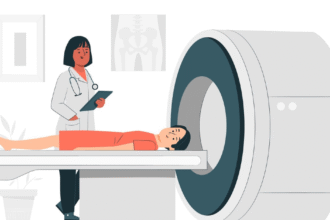Choosing the right healthcare software development company is no small task. With so many options available, how do you know which one is the best fit for your needs?
Maybe you’re a hospital administrator looking for a seamless patient management system. Or perhaps you’re a startup with an innovative idea for a telemedicine app. Whatever the case, selecting the right development partner can make or break your project.
But don’t worry! This guide will help you navigate the decision-making process. We’ll explore what to look for, red flags to avoid, and practical steps to ensure you choose a company that aligns with your vision.
Let’s get started!
Why Choosing the Right Healthcare Software Development Company Matters
The healthcare industry is unique. Unlike other sectors, medical software must comply with strict regulations, ensure data security, and deliver flawless performance.
Imagine a scenario where a hospital uses a faulty patient records system. A simple software error could lead to misdiagnosed patients, medication mix-ups, or data breaches—all of which could have serious consequences.
That’s why hiring the right development team is crucial. You need experts who understand:
✅ Compliance requirements (HIPAA, GDPR, etc.)
✅ Data security and encryption
✅ Integration with existing medical systems
✅ User-friendly and accessible design
Choosing the wrong company can cost you time, money, and even your business reputation.
Key Factors to Consider When Choosing a Healthcare Software Development Company
1. Industry Experience is a Must
Would you trust a general contractor to build a hospital? Probably not. The same logic applies to software development.
Look for a company that specialises in healthcare solutions. Experience matters because healthcare software comes with its own set of challenges, from strict privacy laws to complex workflow automation.
💡 Example: If you need an electronic health records (EHR) system, choose a company that has successfully built one before. Ask for case studies or client references to confirm their expertise.
2. Compliance and Security Knowledge
Medical software must comply with strict industry regulations. Some common ones include:
- HIPAA (for the U.S.) – Ensures patient data privacy.
- GDPR (for the EU) – Protects personal data.
- FDA Regulations – For software classified as a medical device.
Before choosing a development partner, ask:
🛑 Do they have experience with healthcare compliance?
🛑 How do they handle data encryption and cybersecurity?
🛑 Have they built secure systems for hospitals, clinics, or telehealth providers?
💡 Example: A telemedicine app must encrypt video calls, store patient records securely, and limit access to authorised users only.
If a company can’t guarantee security, walk away!
3. Portfolio and Client Reviews
A strong portfolio is proof of a company’s capabilities. When reviewing their past projects, ask yourself:
✔️ Do they have experience in developing healthcare applications?
✔️ Are their past clients satisfied with the results?
✔️ Do their designs look intuitive and user-friendly?
Don’t just rely on what’s on their website. Check Google reviews, Clutch, and LinkedIn recommendations to get honest feedback from previous clients.
💡 Pro Tip: If possible, speak with one of their past clients to hear about their experience firsthand.
4. Technology Stack and Innovation
The right technology stack is essential for your software’s performance, security, and scalability.
Some key technologies used in healthcare software include:
🖥️ Programming Languages: Python, Java, .NET
📱 Mobile Development: React Native, Flutter, Swift
📊 Databases: PostgreSQL, MongoDB
☁️ Cloud Platforms: AWS, Microsoft Azure
A good development team will help you choose the best technologies based on your budget, needs, and long-term goals.
💡 Example: If you need a real-time appointment scheduling system, the software should be built using a scalable cloud-based platform to handle thousands of users simultaneously.
5. Post-Launch Support and Maintenance
Software development doesn’t end once the product is launched. Ongoing support and maintenance are crucial to:
- Fix bugs and technical issues
- Update software for new regulations
- Improve features based on user feedback
Before signing a contract, ask the company:
🔹 Do they offer long-term support?
🔹 How quickly do they respond to issues or downtime?
🔹 What are their maintenance costs?
💡 Example: A hospital management system needs constant updates to remain compatible with new insurance policies and medical guidelines.
6. Customisation vs. Off-the-Shelf Solutions
Not all healthcare providers have the same needs. Some may require fully custom software, while others may benefit from off-the-shelf solutions.
Custom Software: Built from scratch, tailored to your specific workflows and requirements.
Off-the-Shelf Software: Pre-built solutions that can be quickly implemented but may lack flexibility.
If your business model is unique, custom solutions are the best choice. They may take longer to develop, but they offer better flexibility and scalability.
💡 Example: A small clinic might use a standard appointment booking software, while a large hospital may require a fully customised patient management system.
Red Flags to Watch Out For
🚩 Lack of Transparency – If a company avoids sharing details about their previous work, pricing, or development process, it’s a warning sign.
🚩 No Healthcare Experience – General software companies may struggle with medical compliance and regulations.
🚩 Poor Communication – Slow responses and unclear explanations can lead to project delays and misunderstandings.
🚩 No Post-Launch Support – If they don’t offer ongoing maintenance, your software could become outdated quickly.
Conclusion
Choosing the right healthcare software development is a crucial decision that impacts patient care, security, and business success. By focusing on industry experience, compliance, security, technology, and post-launch support, you can find a development partner that aligns with your vision.
If you’re looking for expert guidance, a custom software development company in Canada can help you create a tailored solution that meets your specific needs. With the right team by your side, you can build software that enhances patient care, improves efficiency, and drives innovation.
FAQs
1. How long does it take to develop healthcare software?
It depends on the complexity. A basic telehealth app might take 3-6 months, while a comprehensive hospital management system could take a year or more.
2. What’s the cost of developing healthcare software?
Costs vary based on features, development time, and compliance needs. Basic apps can start at $20,000-$50,000, while advanced platforms can cost $100,000+.
3. Should I choose custom software or an off-the-shelf solution?
If you need specific features and scalability, go for custom software. If you need a quick solution with limited flexibility, an off-the-shelf product may work.
4. What security measures should healthcare software have?
🔒 Data encryption
🛑 Access control (role-based permissions)
📜 HIPAA & GDPR compliance
🚀 Regular security audits
5. How do I know if a development company is trustworthy?
Look for client reviews, case studies, industry experience, and transparency in their processes. Always request a detailed contract before starting a project.





